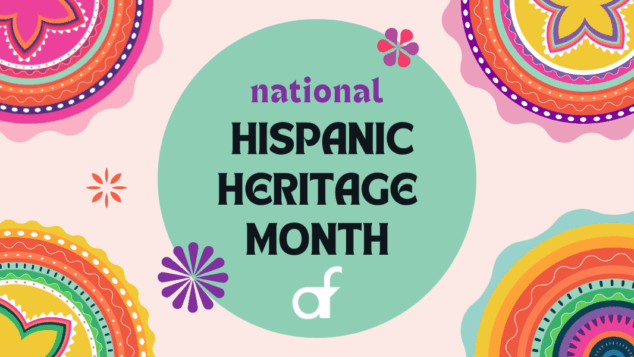Establishing a New Normal

For many, everything we remember about the year 2020 started on March 13. That was the day the World Health Organization declared the coronavirus outbreak a pandemic and life as we knew it shut down. Offices, schools, daycares and stores closed. Toilet paper vanished from shelves and was suddenly in short supply.
The pandemic brought our nation to its knees, claiming more than half a million U.S. lives. Millions of workers lost their jobs or experienced a loss of income by way of furlough or reduced wages. At the same time, we saw a rise in racism and hate crimes against Asian Americans. We witnessed the continued harassment of Black and brown men, women, and children by the police and reigniting the Black Lives Matter movement.
Sure, COVID cases are dwindling and a growing number of people are receiving vaccines, but we’re still far from where we were pre-pandemic.
So, how do we work and engage professionally in the current climate? Constructing and cultivating a new normal (instead of returning to status quo) may be the only way to get back some of that security that we call “normalcy”.
A New Norm in a Time of Job Loss
According to the U.S. Bureau of Labor Statistics December 2020 Monthly Labor Review, the U.S. economy lost 22 million jobs from February to April 2020, and while jobs rebounded in August 2020, the recovery slowed, and by November 2020 there were still 10 million fewer jobs than in February 2020. Although many jobs were spared due to the ability to work from home, pay cuts, and furloughs have also been common, causing a drop in income for many families.
Because many workers are coping with the fear of job loss and financial insecurity, it’s important for organizations to confront this issue with their employees and practice transparency regarding their organization’s own layoffs, furloughs, and wage reductions. Be honest and open about any layoffs or pay cuts as trying to hide or ignore the inevitable only hits harder when these things do occur. “In speaking to executives across industries, the message we continue to hear is that execution matters as much as the strategies and tools being used for cost-cutting measures. Organizations benefit when their leaders prioritize transparency, fairness, and compassion,” state Boris Groysberg and Sarah Abbott in their article “Cut Payroll Costs with Transparency, Fairness, and Compassion”.
The management consulting company Korn Ferry emphasizes the importance of communicating the context of employee displacement and wage reductions through virtual forums that allow employees to share their concerns and for leaders to speak to these concerns and provide answers to any questions that may arise. Remember, your employees are seeing their colleagues and friends lose their jobs and are fearful that they may lose their own positions as well, so acknowledging these losses and practicing empathy are intrinsic to maintaining the health of staff as well as your organization.
A New Norm in a Time of Personal Crisis
Even if your organization isn’t experiencing job losses and pay cuts, your employees may still be suffering from the effects of financial instability within their households, and it’s important to take this into consideration when it comes to providing staff support. What’s more, some employees may be grieving the loss of family or friends due to the coronavirus.
Check in frequently with your team to see how they are managing. Do they need anything outside of the ordinary workplace needs? Many organizations have moved beyond the typical work benefits to ensure their staff’s mental, emotional, and physical wellbeing.
Consider identifying a specific day or time when staff can take a break and focus on themselves or their families, whether it be taking a walk or playing with their children. With most people still mainly working from home, it’s important to give staff time to break up the monotony of their day and get away from the anxieties caused by the pandemic.
In addition to concentrating on the mental health of their employees, many companies have taken into consideration the financial toll the pandemic has caused and have found ways to alleviate some financial stresses. Some organizations are partnering with their local community businesses and organizations to provide additional resources and benefits to their employees like discounts at local restaurants and grocery stores. Even something as simple as sending care packages or meal kits to your team can help employees with the sadness, mental and financial strains, and uncertainty of these times.
A New Norm in a Time of Unrest
Your organization may have released a statement regarding the protests and support of social justice movements such as Black Lives Matter. Don’t let that statement be the beginning and end of your journey! It’s intrinsic to the health and wellbeing of staff to keep assisting and supporting your employees and these movements. Provide a safe space for your employees to discuss their feelings, as well as an ongoing list of resources for confidential mental health services and books and trainings on equity, diversity, and inclusion. In addition to making sure everyone in your organization is aware of your organization’s stance on the treatment and abuse of Black and brown people and police brutality, you must also make sure that everyone within your organization is also aware of your organization’s policies when it comes to discrimination, harassment and retaliation.
Moving Forward
Although 2020 is over, the challenges and adversity we experienced during the year are ongoing as is the trauma. Whether it’s dealing with COVID-19 or racial injustice and police brutality, our nation will continue to be in anguish for some time to come. We need to develop methods of coping both personally and professionally. As a result, organizations must find ways to make their employees feel safe, seen, and cared for. Create a space for open dialogue and new policies to make staff feel welcomed and like they matter in this new norm.
Tags
Related Articles
BAE Chicagoland Kicks Off: Join the Movement!
Black Association Executives (BAE) is officially in Chicagoland, bringing a bold new community to Black...
25/7/365 Leadership: How to gain an extra hour every day (Without burning out)
Association professionals don’t work in a 9‑to‑5 world, but in a 24/7/365 reality. With high...
Celebrating Hispanic Heritage Month with Association Latinos
How to celebrate Hispanic Heritage Month within the association community and Chicago!




